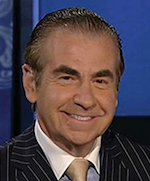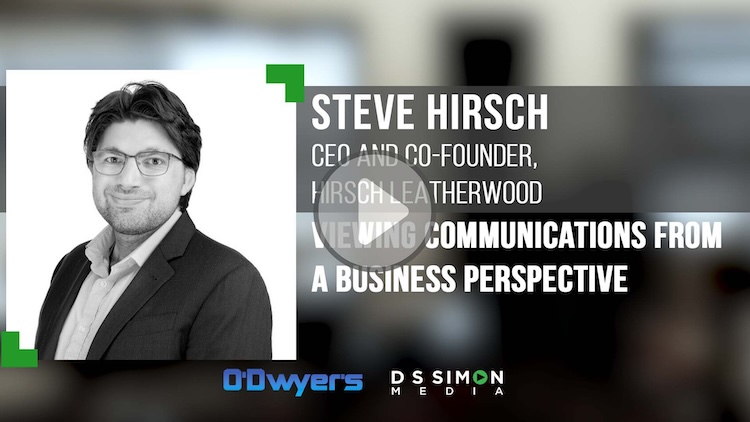 Fraser Seitel |
Steve Bannon's fall from grace was so rapid, so precipitous and so conclusive — not to mention so unexpected — that recalling his name now requires some thought. Never before in the annals of power politics has such a close personal advisor to the President been offed so definitively. Talk about “Gone in 60 seconds.”
How Bannon, the self-acknowledged smartest man in Washington and primary creator of the Trump strategy, got “played” by a notoriously untrustworthy and conniving journalist, should serve as a cautionary tale for any public relations person who deals with the media.
The story by now is well known. Michael Wolff, a strange and prodigiously disliked Wall Street/media columnist for such publications as Vanity Fair and New York Magazine and frequent TV contributor, approached Bannon — then Donald Trump’s strategic advisor — about access to the White House for a book Wolff was writing on the new administration.
Bannon, a former Goldman Sachs manager, movie producer and Breitbart executive, was outspoken in his contempt for the mainstream media and particularly what he saw as its contempt for his candidate. Trump and Bannon led the campaign to demonize the “fake news” delivered by the usual suspects, from CNN to The New York Times. And it was Lt. Bannon, in particular, who served as Gen. Trump’s point man on his anti-media flank, occasionally explaining to hand-selected journalists how unfair the coverage of the new President really was.
The Trump-Bannon combination continued to thrive until the publication of Wolff’s book, “Fire and Fury,” which tells the inside story of a hopelessly dysfunctional White House, where most of the senior troops lament the ignorance, naiveté, insecurity and childishness of the man they serve. While it’s impossible to know how much of Wolff’s best seller is true and how much is baloney, it remains a mystery how someone with a reputation as sleazy as Wolff managed to finagle his way into the inner sanctum of the Trump White House, and why his new friend Bannon awarded him carte blanche access to the West Wing staff for nine solid months, which ultimately resulted in Bannon’s self-immolation.
Within weeks of the book’s first leaks, Trump, no surprise, fired “Sloppy Steve” and presumably severed all ties with his former top aide. Bannon’s financiers quickly followed suit, as did his employer, Breitbart. Today, Steve Bannon has become an historical afterthought. Finished. Over. Kaput.
Here are the three simple public relations reminders he leaves in his wake.
Don’t trust reporters
Or at least the ones you don’t know.
The simple rule that every public relations professional must know is that reporters and sources have different objectives: the latter want good stories about their employers; the former want stories that sizzle. That’s why one must always be wary of reporters.
Bannon, no doubt, was impressed with Wolff’s pedigree. After all, the man was an outstanding writer, winning the National Magazine Award twice, and had worked for the highest-rated publications in the country. He was a published author, sought-after TV media critic and a friend to media movers and shakers, some of whom he partnered with in an attempt to buy media giant Primedia Inc. Perhaps most important to Bannon, Wolff was disdainful of the working press, preferring to rub elbows with the power players rather than the ink-stained wretches.
What Bannon apparently didn’t realize was that Wolff was also a snake. Sure, he was a “good reporter,” just not “good” in terms of fairness, honesty or ethics. Michael Wolff was well known for his provocative prose and producing stories that people wanted to read. But he was equally well known — as described in a most public 2004 cover story in the New Republic — as someone who couldn’t be trusted. That’s why other reporters had no particular use for him, but since Bannon had no particular use for them and because the Trump strategist obviously didn’t do much homework, he opened the White House tent for the snake to slither in. The dope.
Don’t believe your own press
Good public relations people know that any publicity — good or bad — should be believed by half, always playing down expectations.
But Steve Bannon — the President’s architect, his top man, the chief arbiter of policies that affected millions — was flying high for the first time in his life and loving it.
So, when the conniving Wolff approached him with a proposition to write the book that would memorialize Bannon’s place in history, the gullible Bannon ate it up. He believed that in Wolff, a writer who regularly hob-knobbed with the moguls to whom Bannon compared to himself, he had found a writer who could properly discern the superior thoughtfulness that he possessed and the Svengali-like impact he had on an eager believer like President Trump.
This book, the self-inflated advisor thought, would provide the true context of his own policy-making authority and the outsized role that the President’s key advisor would play in the reshaping of America and the world. Michael Wolff, in other words, would be Steve Bannon’s Arthur Schlesinger.
So Steve Bannon dropped his guard and spilled his guts.
Among other pearls, Bannon, according to Wolff, declared Don, Jr.’s infamous meeting with Russians in Trump Tower, “treasonous.” He admitted his antipathy to Trump daughter Ivanka and her husband Jared Kushner and dismissed the two amateurs as “Jarvanka.” Ivanka, Trump’s favorite, was evidently a particular Bannon target. Wolff quoted him as calling her a “@#*@% liar” and gleefully extolling after the United States pulled out of the Paris climate agreement that Ivanka championed, “Score. The bitch is dead.”
Now the only feasible reason anyone would open up so graphically — about his employer’s family, no less! — was that Bannon trusted Wolff to keep some comments off-the-record and protect him as a source. Surprise!
The organization supersedes the individual
Public relations professionals understand that your first loyalty is always to he or she who pays the check. In this case, it’s the President who gets the credit, made the decision or wrote the speech (as White House speechwriter Peggy Noonan famously found out when she bragged that she was the one, not President George HW Bush, who invented the term, “thousand points of light.” Neither Poppy nor Mommy Bush were pleased.)
Stated another way, the organization’s welfare always comes before your own. Steve Bannon, so consumed with his own presumed place in history, either forgot or didn’t realize that simple truth.
So he hungrily swallowed the Wolff Kool-Aid, let the Trojan Horse through the gates and proceeded to backstab his employer. By enabling Wolff to paint the White House as a dysfunctional organization and Trump as an unprepared, dim-witted, way-in-over-his-head buffoon, Bannon sealed his fate.
So intent was Bannon to ensure that he, himself, was memorialized, he never realized that in assisting the devious Wolff, he was committing the cardinal Trump World sin, disloyalty and sealing his own demise.
***
Fraser P. Seitel has been a communications consultant, author and teacher for 40 years. He is the author of the Prentice- Hall text The Practice of Public Relations, now in its eleventh edition, and co-author of Rethinking Reputation and Idea Wise. He may be reached directly at [email protected].










 Have a comment? Send it to
Have a comment? Send it to 
No comments have been submitted for this story yet.